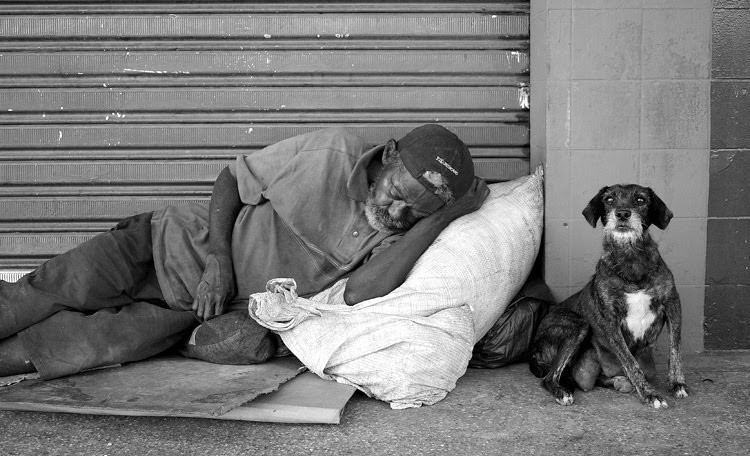Gente sin hogar: temas y luchas diarias
| La vida de una persona sin hogar presenta, carencias emocionales. “El hogar es el lugar en el que te espera la gente que te quiere cuando vuelves a casa, ya sea una vivienda habitual o un albergue“, explica Luis Perea, director de Movilización de la Fundación. Éste, junto con la falta de bienes materiales, es el drama de las personas que no solo han perdido un techo en el que cobijarse, sino el afecto de quienes las rodeaban. | The life of a homeless person also has emotional shortcomings. “The home is where people who love you when you return home, whether it’s a regular home or a shelter,” explains Luis Perea, director of Mobilization of the Foundation. This, along with the lack of material goods, is the drama of people who have not only lost a roof on which to shelter, but the affection of those around them. |
| La diferenciación es importante ya que -recuerdan los expertos- con el lenguaje los despersonalizamos, los negamos como seres individuales con nombre propio para confundimos dentro de un colectivo también mal definido. Así contribuimos a estigmatizar a las personas que viven en la calle. Y esto, a su vez, complica su reinserción social. La opinión generalizada sobre las personas sin hogar es que son responsables de su situación, que suele ser gente desaseada, adicta a las drogas, al juego o al alcohol y que prefiere permanecer en la calle que acudir a un albergue. | Differentiation is important because, as the experts recall, with the language they depersonalize, we deny them as individual beings with their own names to blur them into a group that is also poorly defined. This helps to stigmatize people living on the streets. And this, in turn, complicates their social reintegration. The general opinion about homeless people is that they are responsible for their situation, which is often people who are desiccated, addicted to drugs, gambling or alcohol and prefer to stay in the street than go to a hostel. |
| Es cierto que puede haber personas que no tengan hogar debido a una adicción o que se hayan acostumbrado a vivir en la calle. Como explica Perea, “la mayoría de la gente vivió una infancia en un hogar, con su familia. como consecuencia, en una situación en la que no tienes nada ni a nadie produce la ruptura de la propia identidad y unos niveles de autoestima mínimos. Por eso, algunos se acostumbran a esta situación, porque no pueden estar en permanente conflicto consigo mismos“. | It is true that there may be people who are homeless due to an addiction or who have become accustomed to living on the street. As Perea explains, “most people lived a childhood in a home, with their family. As a result finding yourself in a situation where you have nothing or no one generates the breakdown of one’s identity and minimum levels of self-esteem. That is why some are accustomed to this situation, because they can not be in permanent conflict with themselves. “ |
About the Contributor
Diego Garcia, Traductor
Diego García es un estudiante del doceavo grado en la escuela Abraham Lincoln High school. Que nació aquí en San Jose California . Le gusta mucho todo...







